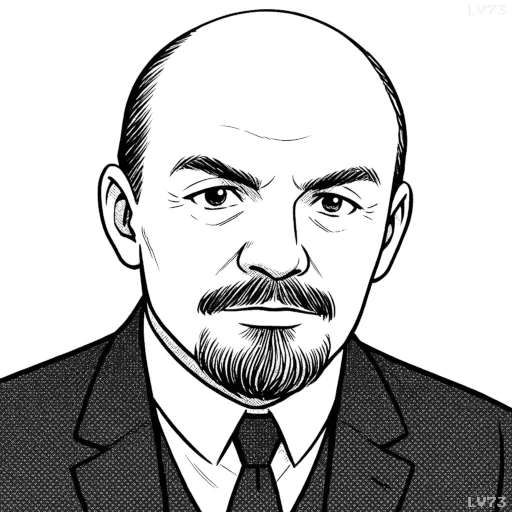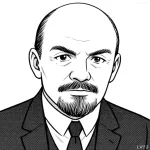“Can a nation be free if it oppresses other nations? It cannot.”

- April 22, 1870 – January 21, 1924
- Born in the Russian Empire
- Revolutionary, political theorist, lawyer, state leader
table of contents
Quote
“Can a nation be free if it oppresses other nations? It cannot.”
Explanation
This quote reflects Lenin’s deep commitment to anti-imperialism and internationalism. He argues that true freedom cannot exist for a nation that subjugates others, as the oppression of foreign nations undermines the fundamental principles of justice and liberty. Lenin believed that imperialism, which involves the domination and exploitation of weaker nations by stronger ones, was inherently contradictory to the idea of freedom. For Lenin, a nation that exercises domination over others is, in reality, not free, because its political and moral legitimacy is based on violence and coercion, not on true democratic principles.
Historically, this idea was central to Lenin’s critique of capitalist powers, especially in the context of Russian imperialism and European colonialism. He argued that the exploitation of colonies and oppressed nations was not just an economic issue, but also a moral one that contradicted the very ideals that capitalist nations claimed to uphold. Lenin believed that socialism could not be achieved by a nation that maintained its own imperialistic practices, and that the struggle for national liberation was intrinsically linked to the global struggle for socialism. This view also emphasized the importance of solidarity among oppressed nations, seeing the liberation of colonies and oppressed peoples as integral to the success of the global socialist movement.
In modern terms, this quote remains relevant in discussions about imperialism, colonial legacy, and global inequality. Nations that continue to engage in economic exploitation, military intervention, and political domination are often seen as contradicting their own claims of promoting democracy and freedom. Lenin’s quote invites reflection on whether economic power and military strength can be reconciled with the values of equality and self-determination. Today, this sentiment is echoed in movements for decolonization, anti-imperialism, and global justice, which argue that true freedom for any nation can only exist in a world where all nations are free from oppression and exploitation.
Would you like to share your impressions or related stories about this quote in the comments section?
